- Find a Provider
-
Services
-
Redeemer Health provides compassionate care across every stage of life.
- View all Services
- Health Care
- Cancer Care
- Heart Care
- Hospital at Home
- Maternity Care
- Pediatric Urgent Care
- More Health Care Services
-
- Patients & Visitors
- Locations
- Careers
categories:

Holy Redeemer Hospital has been named an honoree of Excellence in Patient Safety Recognition, a program launched in 2018 by The Hospital and Healthsystem Association of Pennsylvania.
Holy Redeemer Hospital is one of only 17 hospitals in Pennsylvania that have received this distinguished recognition, which HAP awards to top-performing hospitals that have demonstrated low rates of health-care associated infections.
“This recognition by The Hospital and Healthsystem Association of Pennsylvania attests to our continued and focused efforts to prioritize patient safety. Despite the extraordinary challenges of the COVID-19 pandemic throughout the last year, our leadership and team members across all operational areas tirelessly fostered Safe Care principles, which are the tenets of our commitment to high reliability,” says Catherine Egan, Executive Vice President and Chief Administrative Officer, Holy Redeemer Hospital, and Jeanette Teets, Vice President and Chief Quality, Safety, and Reliability Officer, Redeemer Health.
The Excellence in Patient Safety Recognition program analyzes the CDC’s National Healthcare Safety Network to identify hospitals performing better than average. The data measures the following criteria: central line-associated bloodstream infections, catheter-associated urinary tract infections, and clostridium difficile infections. The recognition program also identifies best practices that can be shared among all hospitals.
For more information about Redeemer Health, visit redeemerhealth.org.
categories:

Redeemer Health Food Pantries received over 11,000 pounds of nonperishable food on November 12, as a generous donation from The Church of Jesus Christ of Latter-day Saints. The Church of Jesus Christ of Latter-day Saints delivered the food via an 18-wheeler, which traveled from Salt Lake City.
A vast majority of the food items were grown on Church farms and ranches, and the logistics in production of these goods were predominately coordinated by Church members.
“We are once again this year tremendously thankful for the generosity of The Church of Jesus Christ of Latter-day Saints,” says Joshua M. Jenkins, Vice President, Mission Integration and Pastoral Care at Redeemer Health. “This donation will directly support food pantry operations; something which is at the very core of upholding human dignity and supporting our mission. It is wonderful to have amazing partners in this effort as witnessed by the donation from The Church of Jesus Christ of Latter-day Saints.”
"It is a privilege to support the wonderful efforts of Holy Redeemer Food Pantries. Their work reflects the example of their namesake as they seek to aid and comfort those in need,” says Joel LHeureux, President of the Philadelphia Stake of The Church of Jesus Christ of Latter-day Saints. “When we reach out to others in service and love it blesses both the giver and receiver. We hope that this contribution will aid them in the important and sacred duty we share."
In addition to its extensive range of health care, home care, and life care services, Redeemer Health carries out its mission to care, comfort and heal through community resources including the Redeemer Health Food Pantry of Pennsylvania, located in Philadelphia, and the Redeemer Health Jersey Shore Food Pantry, located in Cape May County, New Jersey. Each month, both facilities support more than 600 families who face food insecurity.
If you are interested in supporting Redeemer Health Food Pantries, please visit www.redeemerhealth.org/giving/ways-give.
categories:
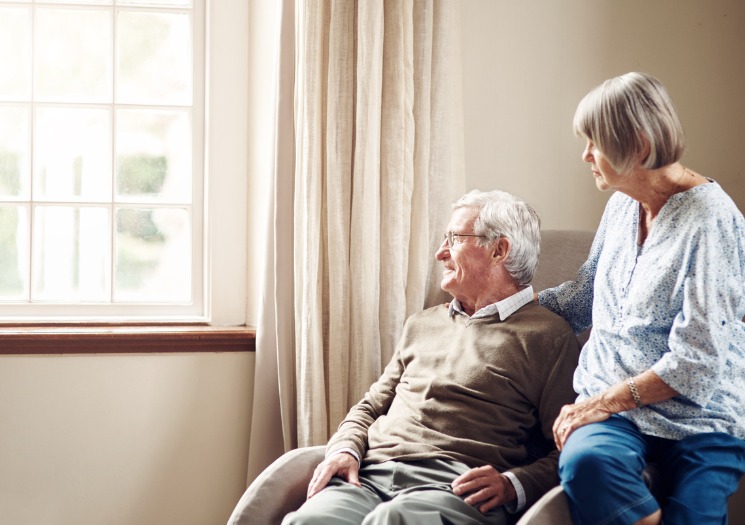
Alzheimer's is a brain disease that causes a slow decline in memory, thinking and reasoning skills. There are 10 warning signs and symptoms. If you notice any of them, don't ignore them.
Most people impacted by Alzheimer’s disease are 65 and older—and according to the National Institute on Aging (NIA), beyond age 65 the number of people with Alzheimer’s disease doubles about every 5 years. Additionally, the NIA estimates about one-third of all people age 85 and older may have Alzheimer's disease.
What kinds of behavior may signal the onset of this disease? We’ve listed 10 common signs that may signal the need for a physician consultation or a discussion on how professional caregivers can help to manage the situation.
1. Memory loss that disrupts daily life
One of the most common signs of Alzheimer’s disease, especially in the early stage, is forgetting recently learned information. Others include forgetting important dates or events, asking for the same information over and over, and increasingly needing to rely on memory aids (e.g., reminder notes or electronic devices) or family members for things a person used to handle on their own.
2. Challenges in planning or solving problems
Some people may experience changes in their ability to develop and follow a plan or work with numbers. They may have trouble following a familiar recipe or keeping track of monthly bills. They may have difficulty concentrating and take much longer to do things than they did before.
3. Difficulty completing familiar tasks at home, at work or at leisure
People with Alzheimer's often find it hard to complete daily tasks. Sometimes, people may have trouble driving to a familiar location, managing a budget at work, or remembering the rules of a favorite game.
4. Confusion with time or place
People with Alzheimer's can lose track of dates, seasons, and the passage of time. They may have trouble understanding something if it is not happening immediately. Sometimes they may forget where they are or how they got there.
5. Trouble understanding visual images and spatial relationships
For some people, having vision problems is a sign of Alzheimer's. They may have difficulty reading, judging distance, and determining color or contrast, which may cause problems with driving.
6. New problems with words in speaking or writing
People with Alzheimer's may have trouble following or joining a conversation. They may stop in the middle of a conversation and have no idea how to continue or they may repeat themselves. They may struggle with vocabulary, have problems finding the right word, or call things by the wrong name (e.g., calling a "watch" a "hand-clock").
7. Misplacing things and losing the ability to retrace steps
A person with Alzheimer's disease may put things in unusual places. They may lose things and be unable to go back over their steps to find them again. Sometimes, they may accuse others of stealing. This may occur more frequently over time.
8. Decreased or poor judgment
People with Alzheimer's may experience changes in judgment or decision-making. For example, they may use poor judgment when dealing with money, giving large amounts to telemarketers. They may pay less attention to grooming or keeping themselves clean.
9. Withdrawal from work or social activities
A person with Alzheimer's may start to remove themselves from hobbies, social activities, work projects or sports. They may have trouble keeping up with a favorite sports team or remembering how to complete a favorite hobby. They also may avoid being social because of the changes they have experienced.
10. Changes in mood and personality
The mood and personalities of people with Alzheimer's can change. They can become confused, suspicious, depressed, fearful, or anxious. They may be easily upset at home, at work, with friends or in places where they are out of their comfort zone.
Help is Here
Do you feel like you may need help to care for a loved one that is exhibiting signs of Alzheimer’s? Redeemer Health can help. Depending on the level of care that is needed, we can support your loved one in their home or in our well-established memory care community.
For skilled care in the home, families can turn to Redeemer Health Home Care. We focus on a person’s overall health, medical history, abilities, lifestyle, goals, and other factors to build customized goals that allow the patient (and their caregivers) to be active participants in their care plan. Our caring and compassionate professional caregivers visit homes throughout Philadelphia and the suburbs, as well as most counties in New Jersey. For more information, visit redeemerhealth.org/homecare or call 1-888-678-8678.
For families that feel a specialized memory care community is a safer option than home care, St. Joseph Manor, a Redeemer Health Life Care community, offers trusted and attentive memory care accommodations. Located in Meadowbrook, PA, next to Holy Redeemer Hospital, the Manor has been recognized for 20121-2022 as a Best Nursing Home by Newsweek and U.S. News. For more information, visit redeemerhealth.org/lifecare/memory-care or call 215-938-4108.
topics in this article
categories:
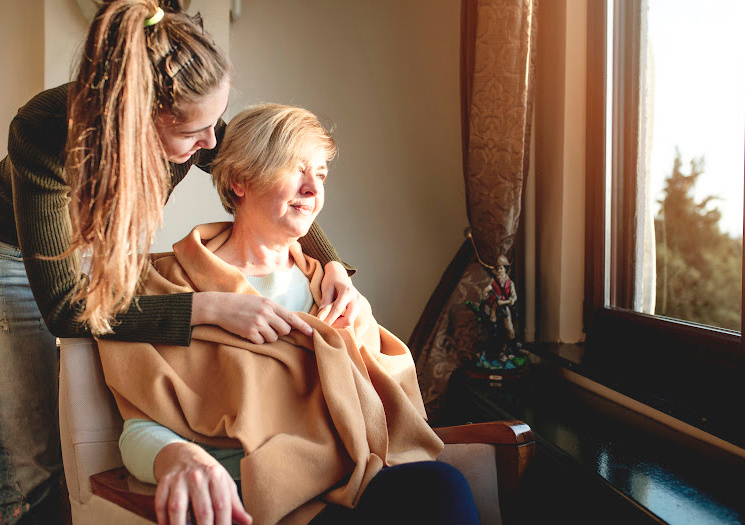
A caregiver is a family member or a friend who helps a person with activities of daily living — personal care, meal prep, medication management, and companionship, among many other things.
Caregiving involves time, energy, and resources. Often, caregivers cope with stressful situations and overwhelming feelings, which can take a toll on their own lives. It is important for caregivers to remember to be mindful of their own needs as they care for others.
There are several simple ways that caregivers can reduce stress:
- Set boundaries - give yourself permission to take time for yourself and schedule uninterrupted time for self-care.
- Take a break - walk away or count to ten, remove yourself from the situation, even if it's for a minute.
- Take a breath - just a few deep breaths or a breathing exercise can calm you down and help you refocus.
- Find your zone - take a moment to fully immerse yourself in a preferred new activity to give your mind a break.
- Exercise - get moving, practice yoga or stretching, go for a walk or a run to relax your body.
- Go outside - connecting with nature, even for a few minutes can rejuvenate your mind.
- Ask for help - you don't have to do it alone, find someone to take some of your responsibilities or give you a break.
- Get support - talking about it helps, share how you feel with your friends and family, join a support group or speak with your clergy leader.
- Get professional help - if you are feeling overwhelmed or want to share your feelings, privately speaking with a behavioral health counselor can help.
- Acknowledge your good work - value what you are doing for your loved one, it is important work.
Understand that stress is a natural part of life, especially when you are caring for a loved one, but taking time to take care of yourself may help you be a better caregiver.
If you would like information about speaking with a counselor visit Redeemer Health's Behavioral Health Services page at redeemerhealth.org/behavioralhealth, or call 215-914-4190.
categories:
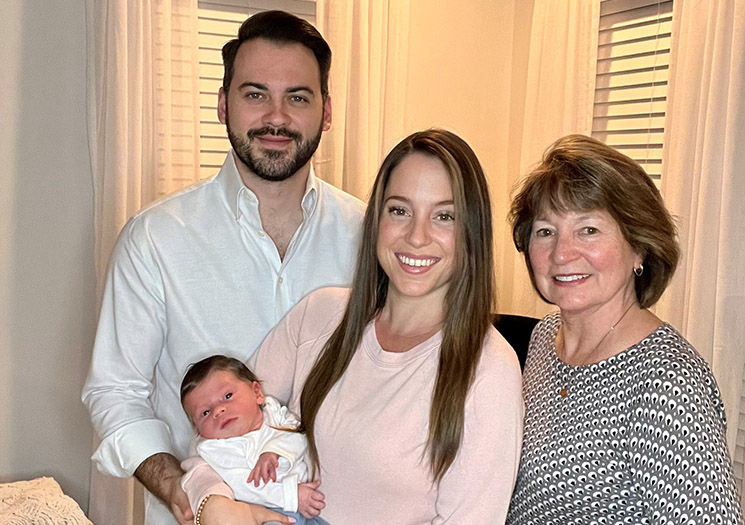
Although it was something she never expected, Nancy Passehl gained a new “family” of support in the form of Redeemer Health’s NICU team when six months into her pregnancy she felt extremely uncomfortable.
The date was October 27, 1989. A terrified Nancy was rushed to Holy Redeemer Hospital, where she learned that she was about to have her baby three months early. Later that day, Nancy’s baby daughter, Jamie, was born at two pounds eight ounces and immediately admitted to the NICU.
Jamie required intensive treatment for almost two months, and much like a lot of premature babies requiring intensive care, she experienced several ups and downs. At one point, her weight dropped to one pound 14 ounces, and for Nancy, this was an indescribable emotional roller coaster.
Although Jamie was in the NICU, Nancy says that “the NICU staff was with me each step of the way. They made me feel very comfortable, and I knew that Jamie was in good hands.”
Thankfully, Jamie and Nancy benefitted from not only the expertise and compassion of the Holy Redeemer Hospital NICU staff, but also from the NICU’s access to advanced medications.
As a result of Jamie’s early arrival, she was born with respiratory distress syndrome, a disease that occurs because the lungs have not produced enough surfactant. Surfactant is a mixture of fat and proteins made in the lungs that coats the alveoli (the air sacs in the lungs where oxygen enters the body), preventing the lungs from sticking together and collapsing. Jamie Marie was given a life-saving drug called Infasurf, a replacement lung surfactant, which was administered through an endotracheal tube.
After nearly two months in the NICU, and growing up healthy and happy, Jamie Di Domizio just became a mother herself! Jamie delivered her son on November 2, 2021, and she now has a healthy Redeemer Baby, Romeo Patrick.
Because of the care she herself received in Holy Redeemer Hospital’s NICU, Jamie, now 32 years old, says, “expectant mothers receive a top-notch level of care, and the maternity staff is bar none. I felt very comfortable delivering a Redeemer Baby at Holy Redeemer Hospital.”
Becoming a mother is one of the most rewarding –and sometimes challenging –experiences a woman can encounter. Redeemer Health is honored to be such an important partner in the lives of Nancy, Jamie, and her son.
As with Nancy and Jamie, our caring and compassionate Redeemer family often has the distinct honor to nurture the health and well-being of generations of parents and children. We want to hear your story! Share with us how Redeemer Health has provided care and comfort to you and your family over the years.
categories:

There are many overall health benefits to quitting smoking - improving your circulation, decreasing your risk of disease, and lengthening your life expectancy, to name a few. It’s never too late to quit and the sooner you do, the more you can reduce your risk of getting cancer and other diseases.
If you are ready to quit smoking for good, here are some tips to help:
1. Stay clear of triggers: your urge for a smoke may be most intense when you are in a place where you often smoke. Avoid relapse by being aware of triggers and having a plan in place to replace the habit, such as holding a pen or popping a mint.
2. Procrastinate: when you have a craving, train yourself to wait at least 10 minutes and distract yourself by playing with a rubber band or stress ball.
3. Confront yourself: in the moments of a strong urge to smoke, you may tell yourself that one cigarette won't hurt. Stand strong and firm. Look at yourself in the mirror and encourage healthy habits.
4. Chew on something healthy: smoking is an oral fixation. Shift the urge to smoke by chewing on something healthy: raw carrots or celery, sunflower seeds, granola, or gum.
5. Exercise the craving away: walking, jogging, biking, or cleaning can help you beat your tobacco craving. Physical activity is a good distraction while also burning calories.
6. Remind yourself of the benefits: never forget why you are working hard to quit: better health, better psychological state, saving money, and sparing your loved ones from second-hand smoke.
7. Remind yourself of who you are quitting for: face the mirror and say it aloud: "I'm quitting for my..." (family, children, parents, loved ones...).
8. Don't go it alone: Find a partner who also needs to quit and support each other. You may also find an understanding friend or relative who you can contact when your temptation is high. You can also call 800-QUIT-NOW (800-784-8669), a free support line offering one-on-one support.
Remember that every day you resist your tobacco cravings is a step closer to completely quitting and improving your health.
categories:
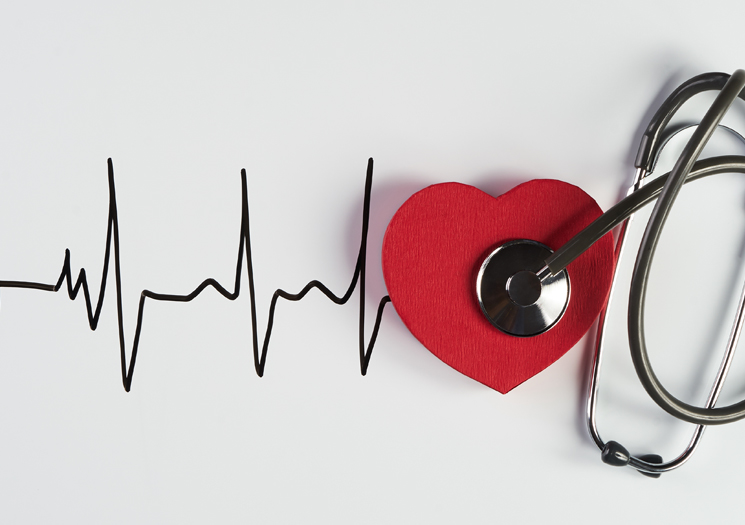
Under the direction of Dr. Paul Sandhu, a board-certified cardiac electrophysiologist, Redeemer Health has expanded the treatment options available for those who cope with arrhythmias.
An arrhythmia is defined as an abnormal heart rhythm, which results from a problem within the electrical conduction system of the heart, ranging from the heart beating too fast, too slow, or in an irregular pattern.
Fortunately, many arrhythmias are considered harmless and do not require treatment. However, some arrhythmia issues can put you at risk for more serious complications.
For those arrhythmias that do need treatment, Dr. Sandhu says options at Redeemer Health include:
- Leadless pacemakers - a small device that sends slight electrical impulses to the heart muscle to maintain a suitable heart rate
- Cardiac Resynchronization Therapy (CRT) - a device that helps the heart beat more efficiently and with better synchrony in certain heart conditions
- Implantable Cardioverter Defibrillators (ICDs) - a device that tracks heart rhythm and delivers very brief electric shocks for life-threatening heart rhythms to the heart muscle to make it beat in regular rhythm again
“Arrhythmias can have an immense impact on one’s quality of life,” says Dr. Sandhu, who has brought ICD technology to Redeemer Health. “I’m excited to be able to offer this procedure that may provide immediate and dramatic relief from a potentially life-threatening problem, right here at Holy Redeemer Hospital.”
Click here to learn more about cardiology care at Redeemer Health.
categories:

The heart is a remarkable, fist-sized organ that pumps oxygen and nutrient-rich blood throughout your body to sustain life. Under normal circumstances, it beats 100,000 times per day, pumping five or six quarts of blood each minute, which equates to about 2,000 gallons per day!
The heart beats in a regular rhythm and at a rate that is appropriate for the work the body is doing. The electrical conduction system of your heart initiates each heartbeat and creates signals that trigger the heart to pump.
But what happens if your heart has an abnormal rhythm?
What is an arrhythmia and how is it diagnosed?
Abnormal heart rhythms –known as arrhythmias –result from a problem within the electrical conduction system of the heart, which can range from the heart beating too fast, too slow, or in an irregular pattern.
Arrhythmias can often go unnoticed and exhibit no apparent symptoms. However, if symptoms do present, they can include any of the following:
- Fatigue
- Dizziness or feeling lightheaded
- Shortness of breath
- Heart palpations (a feeling of skipped heartbeats, fluttering, or racing)
- Chest pain or tightness
- Passing out
Consult your doctor if you experience any of these symptoms so they can perform a comprehensive history and physical examination. Your doctor may prescribe testing to help diagnose an arrhythmia, such as an electrocardiogram (or EKG), Holter monitor, event recorder, echocardiogram, and/or stress test.
What treatments are available?
Fortunately, many arrhythmias are considered harmless and do not need treatment. However, some arrhythmia issues can put you at risk for more serious complications. It’s important to know there are treatment options, including medications, device therapy that can modulate the heart’s electrical activity, and catheter ablation (where a short circuit arrhythmia can be targeted and eliminated directly from inside the heart), to help provide immediate and dramatic relief from a potentially life-threatening problem.
Harpaul Sandhu, MD, FHRS, a Redeemer Health board-certified cardiac electrophysiologist, echocardiographer, and nuclear cardiologist specializes in testing for, diagnosing, and treating abnormal heart rhythms. He points out some treatment options, all available at Redeemer Health, that include:
•Leadless pacemakers – a small device that sends slight electrical impulses to the heart muscle to maintain a suitable heart rate
•Cardiac Resynchronization Therapy (CRT) – a device that helps the heart beat more efficiently and with better synchrony in certain heart conditions.
•Implantable Cardioverter Defibrillators (ICDs) – a device that tracks heart rhythm and delivers very brief electric shocks for life-threatening heart rhythms to the heart muscle to make it beat in regular rhythm again.
To learn more about Redeemer Health’s expert testing, diagnosis, and treatment for life-threatening arrhythmias, visit https://www.redeemerhealth.org/services/health-care/heart-care or call 215-436-1420.
categories:
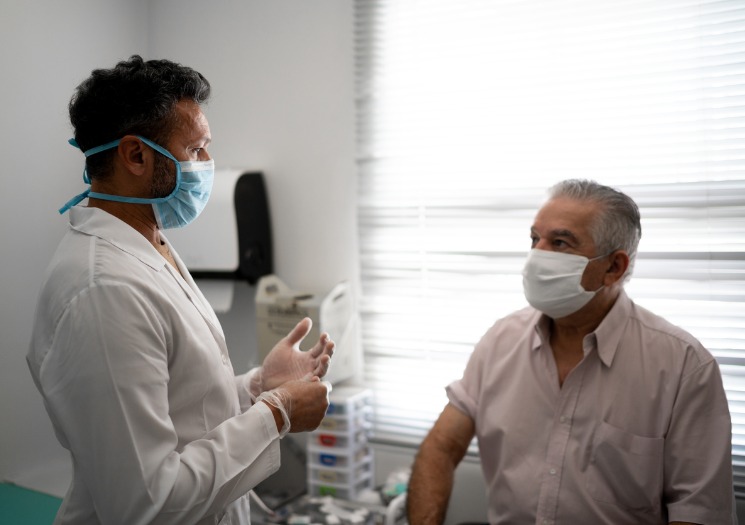
The best way to prevent seasonal flu is to get vaccinated each year, but good health habits can help stop the spread of germs and prevent respiratory illnesses like the flu.
Reduce Your Exposure
We have all become very comfortable with the precautions put in place because of the COVID virus and these same steps can limit our exposure to the flu.
- Wash your hands often with soap and water, or use an alcohol-based hand sanitizer.
- Cough or sneeze into a tissue, then throw the tissue away.
- Don’t touch your eyes, nose, or mouth after washing your hands.
- Keep a physical distance of six feet.
- Try to stay away from sick people.
- Wear a face mask indoors.
Get a Flu Vaccination
The flu vaccine is easily accessible and, should you catch the flu, can help reduce the severity. Studies show that when people receive the vaccine the need to go to the doctor because of flu is reduced by half and visits to the hospital’s intensive care unit are reduced by more than 80%. Building up immunity takes up to two weeks to develop after vaccination, so it’s best to get your flu shot as soon as possible.
"The vaccine is especially important for people 65 and older, as they have a higher risk of developing serious complications from the flu and should get the vaccine," says Dr. Merlyn S. Manattu, a primary care physician at Redeemer Health Family Medicine - Bensalem. "Everyone should get a flu shot, but it is more important for people who have chronic medical conditions since the flu can cause serious complications that could lead to hospitalization and sometimes, even death."
The Flu and COVID
Both illnesses can present with fever, headache, cough, sore throat, muscle aches, and fatigue. Fortunately, doctors can simultaneously test for COVID-19, flu, and even RSV, a common virus that infects the respiratory tract, to quickly discern a diagnosis and begin a treatment plan. "You can catch COVID-19 and the flu at the same time. And the impact could be more severe, resulting in great strain on your respiratory system," says Dr. Manattu. "The best line of defense is to get the flu vaccine to help protect yourself and others around you.
If Illness Should Occur
If you have flu-like symptoms drink plenty of fluids, take over-the-counter medications to relieve fever, aches, pains, congestion, and coughing, and stay home and rest until your fever has been gone for at least 24 hours.
People at high risk of complications from a virus, including young children, adults 65 years of age and older, pregnant women, and people with certain medical conditions, should contact their doctor as soon as they begin to have flu symptoms. For others, you should see your doctor if your flu symptoms are not improving with over-the-counter treatments. Seek emergency care if you have a fever over 102 degrees, persistent vomiting, shortness of breath or difficulty breathing, or very swollen glands in your neck or jaw.
If you have not scheduled your flu vaccine yet, contact your primary care physician. If you have received your flu shot from another location, let your primary care team know to add it to your medical records. If you need a primary care physician referral, contact the Redeemer Health Information line at 1-800-818-4747.
categories:
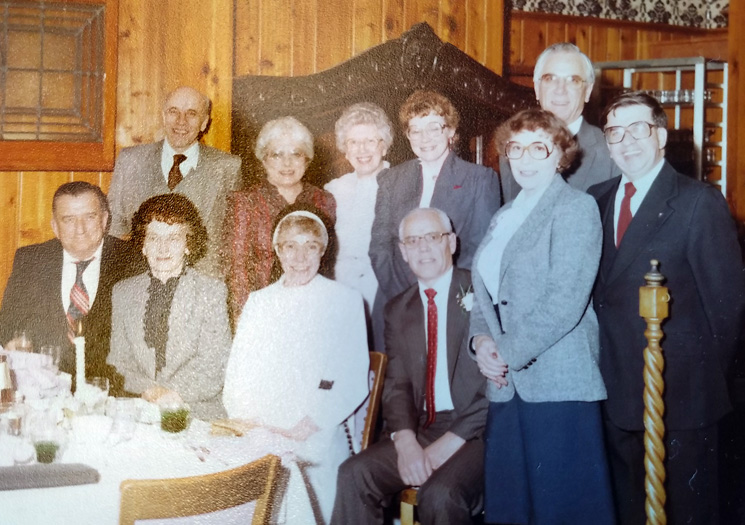
We all can remember one or two people who inspired us deeply, touched our spirits, shaped our thoughts and made us want to be like them. To the Sperger siblings, John, Mike, Father Herb, and Mary Jean, that person was Aunt Bernie.
Aunt Bernie, also known as Sister Jean, was a member of the Dominican Sisters of Hawthorne, Servants of Relief for Incurable Cancer, for 35 years, as well as a licensed practical nurse. She cared for and comforted patients and families during one of the most difficult time of their lives – the journey of facing terminal cancer.
Sister Jean grew up on a dairy farm in Wisconsin in a fun-loving, close-knit family of nine children. She spent a year at teachers college and worked as a bookkeeper for several companies before finding her vocation. The self-described free spirit said she “prayed that God would give me something to fill my life.”
Surprising her family and friends, she joined the Dominican Sisters of Hawthorne and worked in a number of Hawthorne Dominican Homes, including in Philadelphia. Her nurturing and care made a lasting impression on so many patients and their loved ones.
The 50th Wedding Anniversary Gift
Herbert and Maria, parents of the Sperger children, were celebrating their 50th wedding anniversary in 1996. Father Herb, a former chaplain with Redeemer Health, suggested to his siblings that they could commemorate this special occasion and continue the legacy of Sister Jean, who died of cancer in 1991 at age 68, by creating an endowment fund.
Father Herb and his siblings created The Sister Jean Endowment Fund to benefit hospice patients and their loved ones, especially those facing financial difficulties. Friends and family members gave donations in lieu of anniversary presents to help establish the fund.
Now in its 25th year, the Sister Jean Endowment continues to provide much-needed dollars that make it possible for patients and families — at a deeply vulnerable time — to receive strength and support from a hospice team that nurtures their physical, emotional and spiritual well-being.
With community resource funding very limited, the Sister Jean Endowment has been a godsend for families without means, said Penny Farrell, a social worker with Redeemer Health. “This fund allows patients to die at home as they want, as their choice,” Penny said. “That is the overall major benefit of this program.”
For example, the Sister Jean Endowment helped a dying woman whose grown children lived at a distance, Penny said. The woman could not afford private care but through the fund was able to get support services so she could stay at home with her two dogs, which was very important to her.
This year, the Sperger family expanded the use of the fund to assist not just hospice patients with cancer but also those with any terminal diagnosis, including heart disease, dementia and respiratory illnesses, said Redeemer Health Hospice Director of Clinical Operations Coleen McCann, RN, MSN. “Cancer is not our number one diagnosis anymore,” Coleen said.
There also are plans to tap into the fund to be able to send an aide to sit with a person in the hospital who can’t go home until their pain or anxiety is under control, she said. The family also approved use of the fund to assist with programmatic needs, such as ongoing education for hospice team members, Coleen said.
Over the years, the Sperger family’s inspirational gesture has touched countless families who need support during their hospice journey. Their generosity helps us fulfill our mission to care, comfort and heal.
The Legacy of Giving Across Generations
The Sperger siblings’ compassion and generosity are inspiring the next generation of the family.
Michael, the eldest grandson of Herbert and Maria, and his cousins continue Sister Jean’s legacy and pass along the call to care for others in need to the following generations. The family’s gifts bring great joy to many families and memorialize the devotion and spirit of Sister Jean.
“Through the encouragement of my father, aunts and uncles, we have grown up very close and are faithfully connected to the work of caring for others,” Michael said.
We invite you to inspire others by getting involved and making a difference individually or with your family. Please contact the Redeemer Health Office of Philanthropy at 215-914-4000 or giving@holyredeemer.com, or visit httpps://www.redeemerhealth.org/giving/ways-give.
